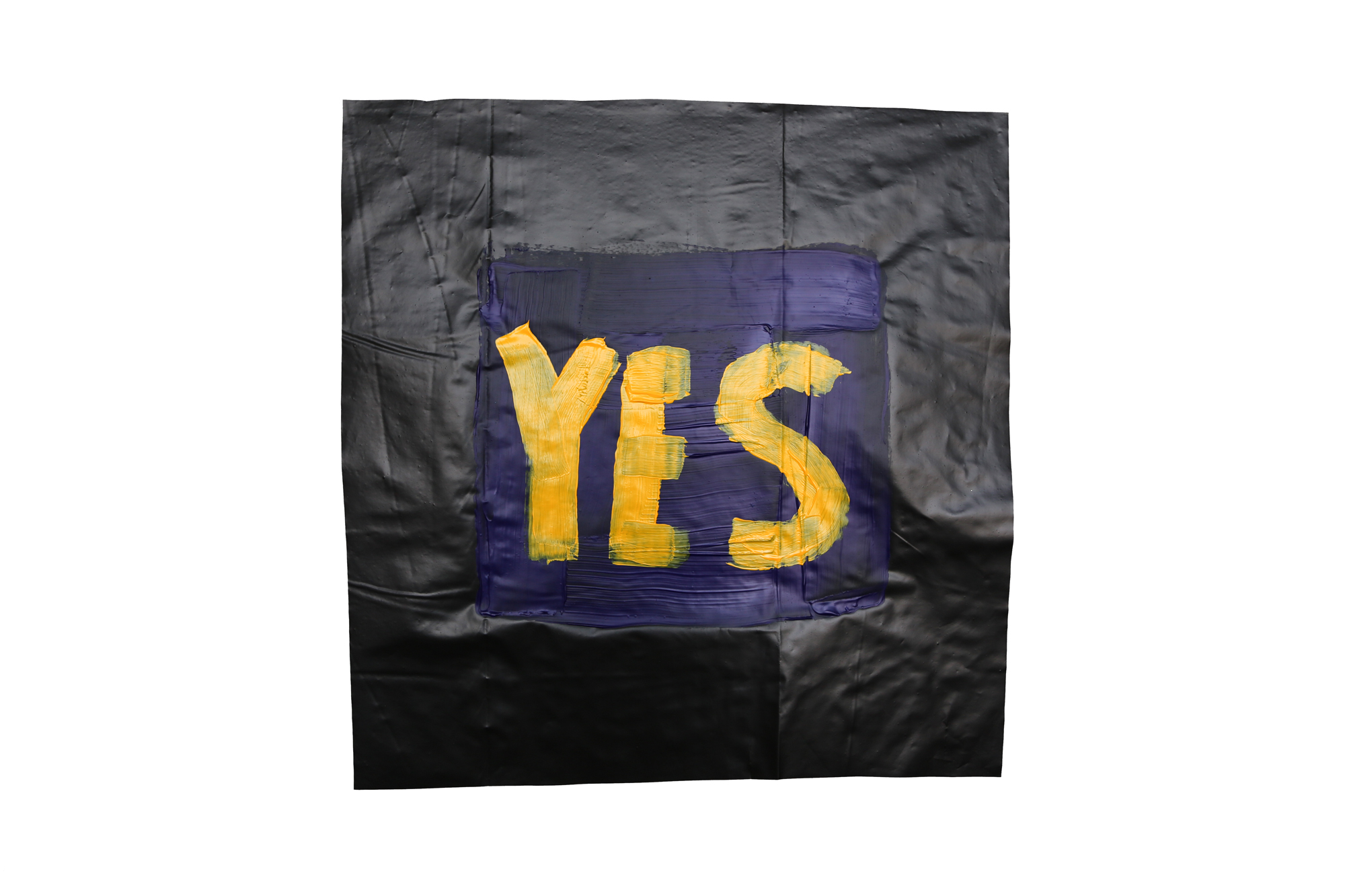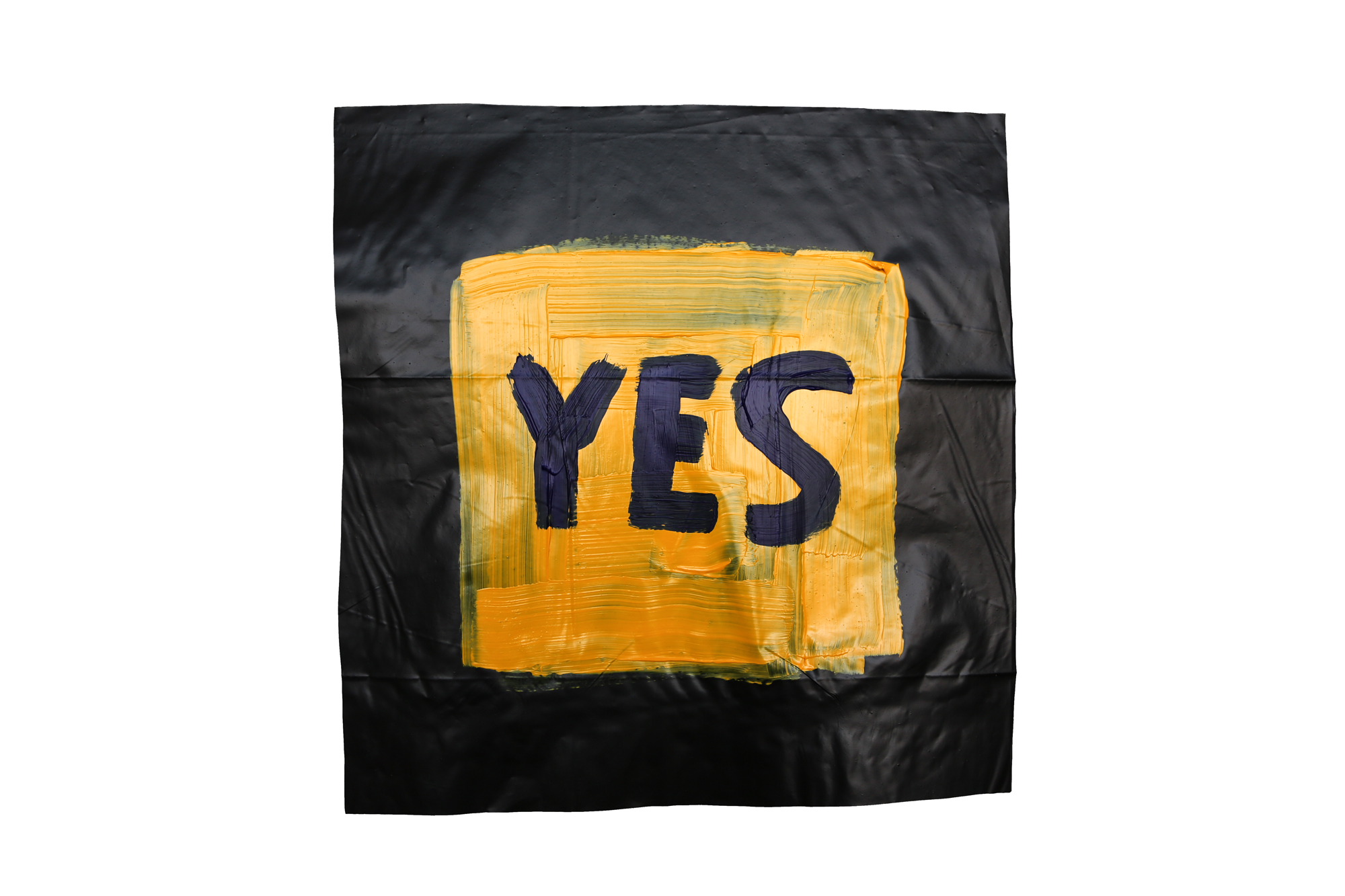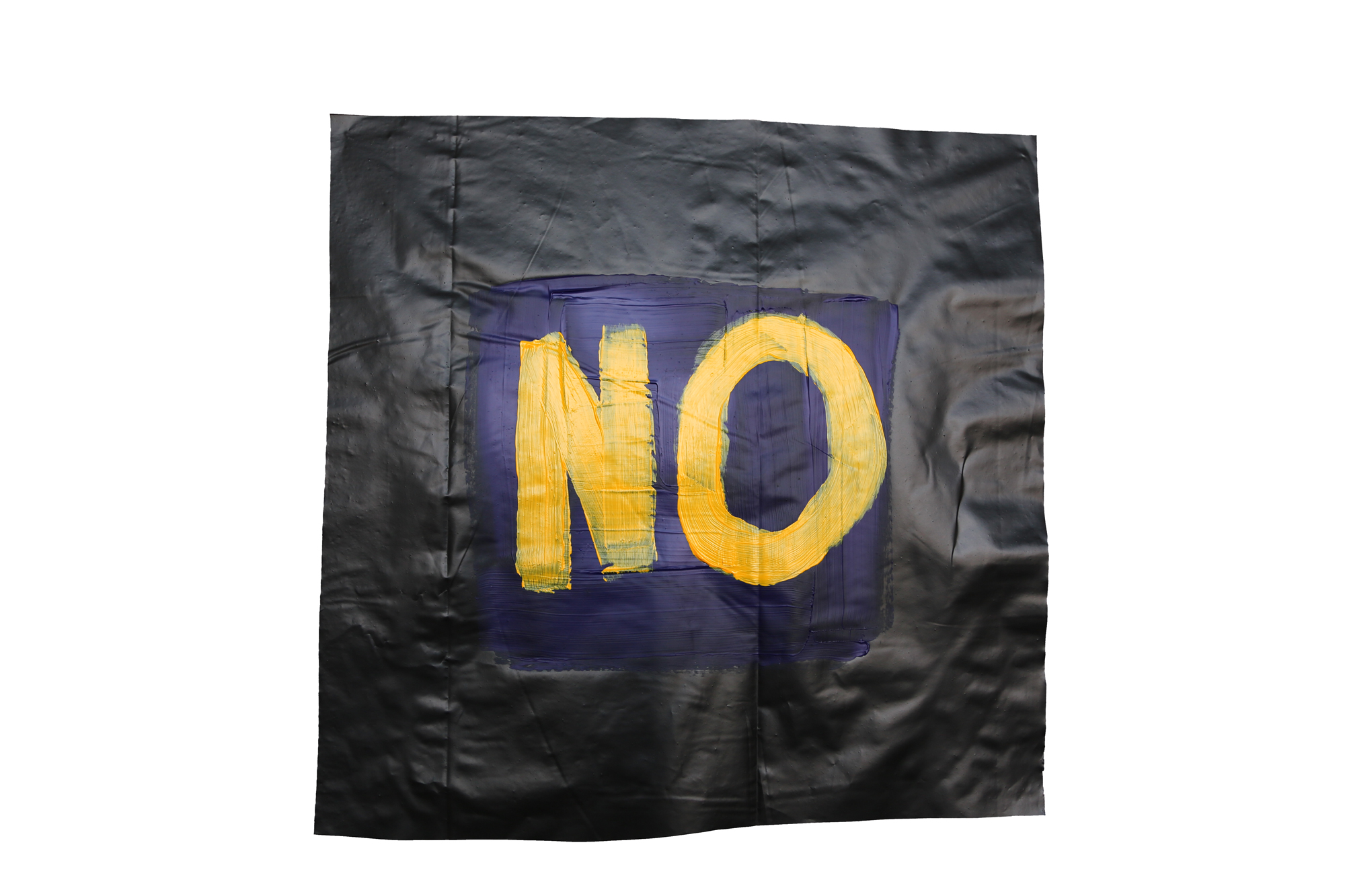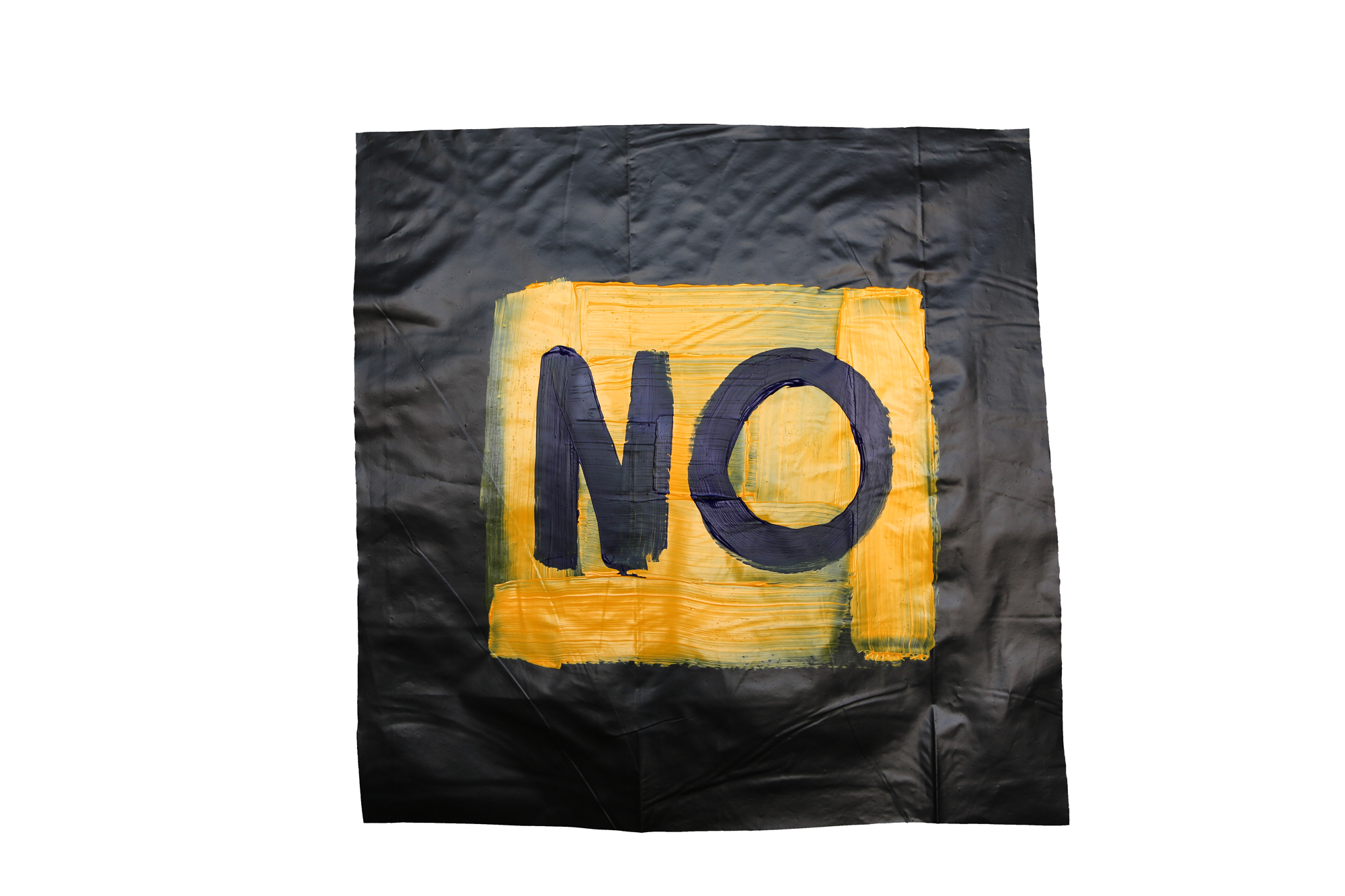Can You Feel It? I Can Feel It is a new installation work by Lanfranco Aceti created for the exhibition, When All is Said… and Done, curated by Artemis Potamianou for the Lubomirov/Angus-Hughes gallery in London. Participating artists include: Lanfranco Aceti, Aggelos Antonopoulos, Bill Balaskas, Jackie Berridge, Jimi Efthimiou-Dimitris Mitsopoulos-Vivi Papanikola, George Harvalias, Lady Michelle, Frini Mouzakitou, Giorgos Papadatos, Artemis Potamianou, Clay Smith, and Mark Titchner.
Composed of twenty-four panels that alternate the words ‘YES’ and ‘NO,’ Aceti’s most recent work of art represents a mockery of the role that referenda have played within the European Union, as well as the value attributed to those same words within the context of an intimate relationship. The artist, who has worked for years with themes of labor exploitation, social exclusion, political upheaval, and financial enslavement, continues to explore the relationship between sex, love, politics, and power. Set within a contemporary context in which even personal relationships are constructed on capitalistic terms of exploitation, use, and abuse, the affirmations ‘YES’ and ‘NO’ have acquired a different meaning. The hypocrisy of the question asked—and the hypocrisy of the answer to that question—no longer holds true in a context in which everyone is aware of everyone else’s misgivings.
The expression of consent, or its negation for that matter, is no longer freely given and is relinquished and surrendered based on a lack of equal standing and/or deliberate suppression of freedom. In this respect, consent is given in response to a question that is no longer offering choices, but rather expecting pre-determined answers, as well as demanding the compliance of the respondent. In the artist’s aesthetic approach, this contemporary predicament became abundantly clear in recent and past European referenda which were repeatedly submitted to its citizens until the population voted in the ‘right way.’ Aceti’s work analyses the current state of socio-political participation and broader notions of consent that are now based upon the unspoken stipulation of conforming to expectations and desires of the body politic. This semantic shift is reflected in the same way personal relationships, reduced to forced forms of exploitation, no longer express a freedom of choice, but reinforce bonds and ties enslaving intimacy to the expectation of what is required and not the ‘reality’ of negotiating between two different, and at times, opposing desires. Using one another and expecting compliance nullifies the answer of a ‘YES’ or a ‘NO,’ which no longer reflect the expression of an inner desire, but the necessity of deferring to the will of the questioner.
“In recent years I have been focusing on the representation of the nation state as a physical person. It is an ancient metaphor that in the contemporary landscape of socio-economic crisis has allowed me to reflect upon the relationship between western post-democracies and post-citizenship. The relationship that is being explored in the artwork is one that straddles the domains of love and hate. It is in this context of conflict—in which the nation state and its citizens are personified—that the relationship becomes one of confrontation and warring whereby questions and answers are constructed upon treacherous lies, wary misgivings, and shifting meanings. No one means what they say, or says what they mean. It all becomes a pantomime in which love and power blend seamlessly within a struggle that is continuous and inescapable.”
Through its materiality, Aceti’s artwork—made of trash bags, acrylic paint, and non-lubricated colored condoms—wishes to engage with contemporary trash politics, false referenda, unrequited love, pragmatic lies, and alternative realities.
It is in this context that the artist explores the chaos of contemporary post-democracies, the idea of post-citizenship, and the concept of social rape as perpetrated by current politics. In the midst of the collapse of social decency in both personal and political relationship, the artist asks the question: “Who is fucking whom?”
Lanfranco Aceti, Can You Feel It? I Can Feel It, 2018. Acrylic paint, trash bags, and non-lubricated colored condoms. Dimensions: 200 cm x 579 cm. Panel detail: 50 cm x 50 cm.




